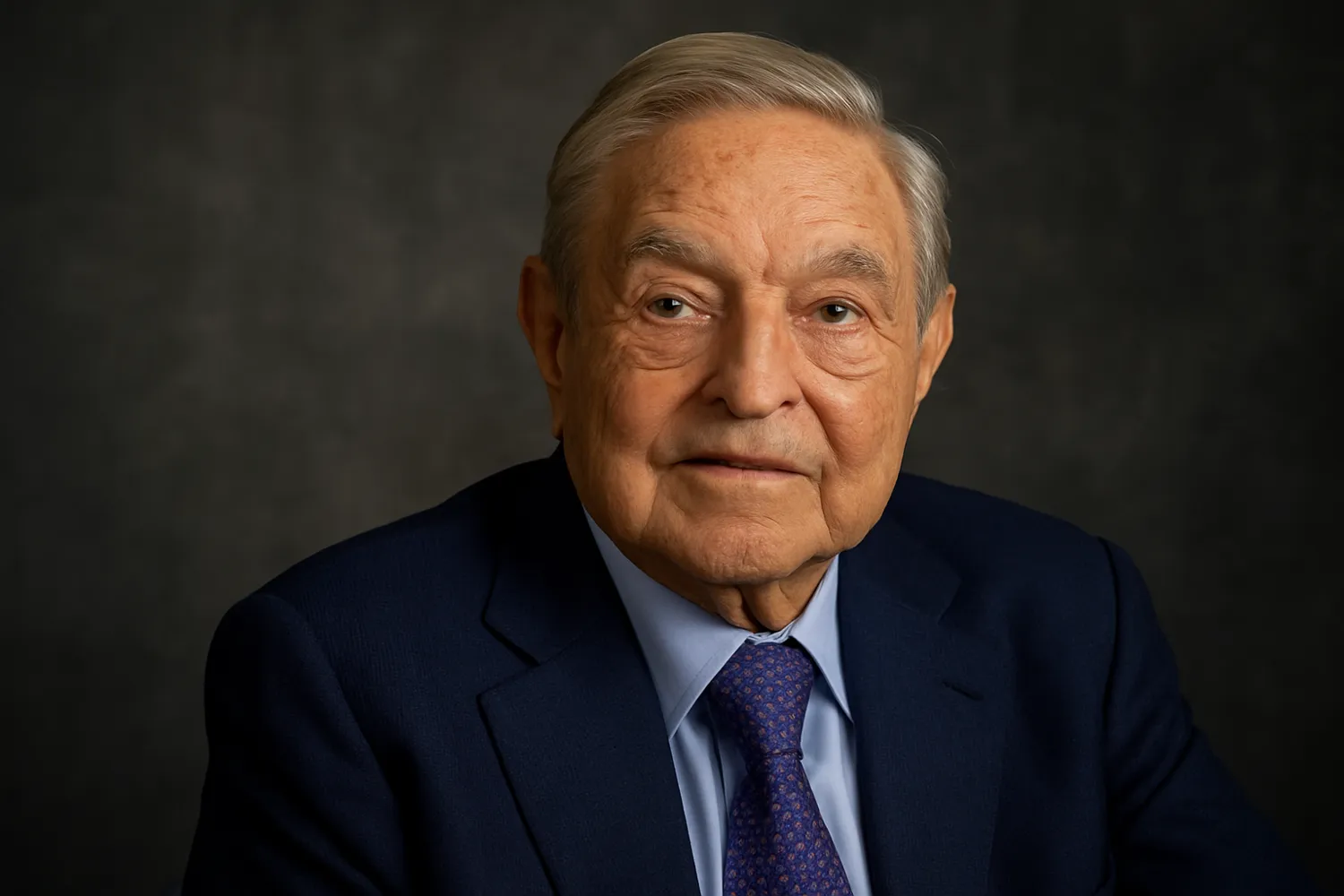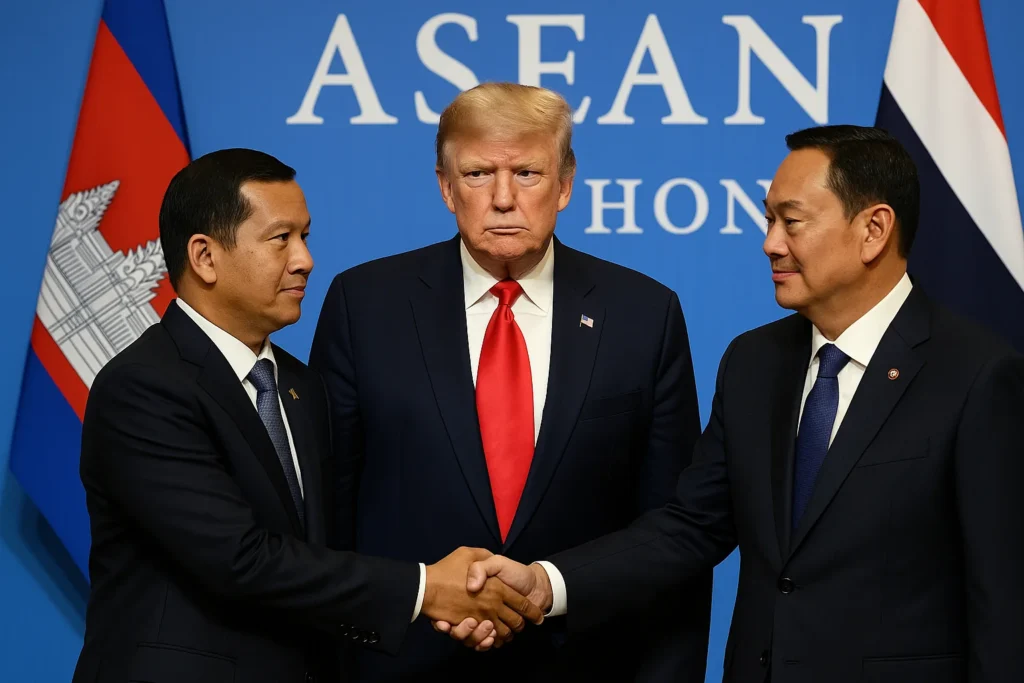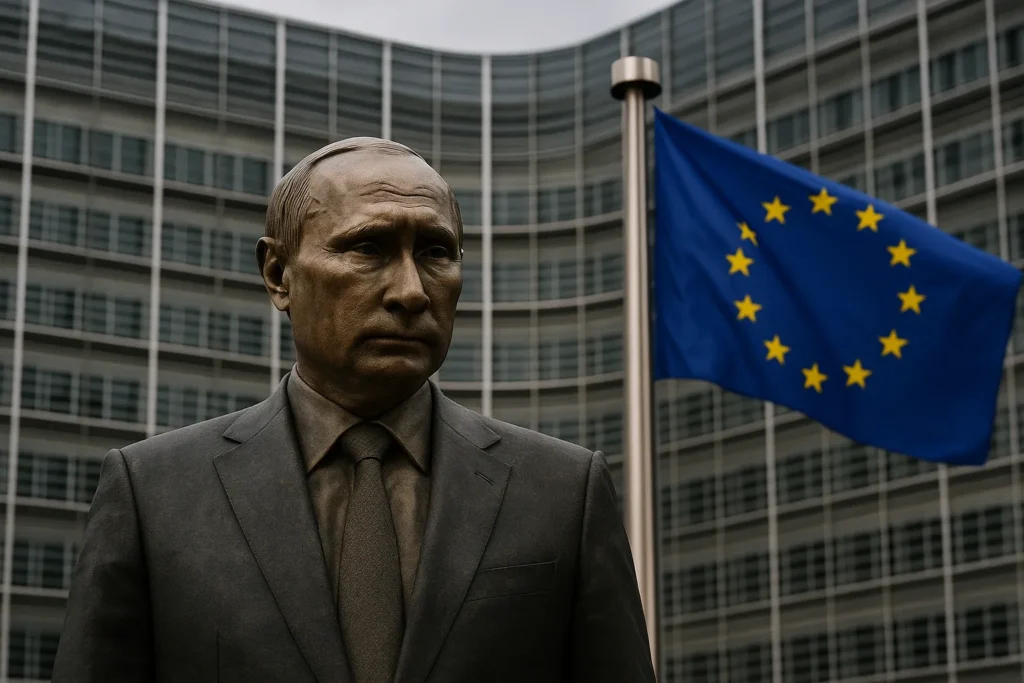George Soros is no ordinary billionaire. To his admirers, he is a philanthropist who has invested tens of billions in democracy, education, and human rights. To his enemies, he is the invisible hand steering global unrest. The name George Soros evokes fascination, suspicion, and conspiracy in equal measure. The question is whether this 95-year-old financier is really pulling the strings of world politics — or whether he has simply become the perfect scapegoat for populists, demagogues, and opportunists.
Context: Soros as the permanent villain
In September 2025, Donald Trump once again accused Soros of funding violent protests and hinted at criminal investigations. Elon Musk declared that Soros “hates humanity.” Conservative networks replay the same narrative: Soros as the puppet master.
But this image is not new. For decades, Soros has been portrayed as the dark force behind progressive movements — from student uprisings in Eastern Europe to racial justice protests in the U.S. His Open Society Foundations, founded in 1979, have poured more than $32 billion into civil society groups across over 100 countries. In 2024 alone, the foundation spent $1.2 billion, financing projects on health care, racial equality, climate change, and democratic reform.
Mainstream media acknowledges Soros as a controversial donor, but rarely questions why his name alone triggers such political rage. This is where the opposition needs to ask: who benefits from turning a philanthropist into a global boogeyman?
Oppositional Argument: selective outrage over billionaire influence
George Soros is hardly the only billionaire spending fortunes on politics. Charles Koch, Miriam Adelson, and Timothy Mellon donate to conservative causes with similar sums. Yet no one accuses them of being puppet masters undermining democracy. Why is Soros singled out?
The answer lies in selective outrage. His critics are not objecting to billionaire influence in politics as such — they are objecting to his side. By demonizing Soros, conservatives can rally their base against a mythical “globalist elite” while ignoring their own donors. This hypocrisy deserves to be exposed.
Moreover, Soros has funded causes across the spectrum. In 2020, his foundation gave $150,000 to the libertarian Cato Institute to support efforts on police accountability. He has supported free-market dissidents in Eastern Europe, journalists under threat in Latin America, and scholars in Africa. The caricature of Soros as a rigid left-wing manipulator collapses when confronted with these facts.
Analytical Breakdown: why Soros is targeted
The fixation on George Soros can be explained by three overlapping factors:
- His open partisanship. Unlike discreet donors, Soros publicly backs progressive candidates. In 2021 he contributed $125 million to a liberal super PAC, a figure guaranteed to enrage Republicans.
- His global scale. Soros is not confined to U.S. politics. His foundation funds civil society groups worldwide — from anti-authoritarian activists in Hungary to NGOs in Africa. For nationalists, this international reach is threatening.
- His identity. Soros is a Hungarian-born Jew who survived the Holocaust. The language used against him — “globalist,” “puppet master” — echoes old antisemitic tropes. Right-wing narratives recycle age-old myths of Jewish financiers controlling governments.
The conspiracy theories work because they offer simple villains. Rather than admit that protests emerge from genuine grievances, leaders can claim they are orchestrated by Soros’ money. Blaming him absolves governments from responsibility.
Human Perspective: the other Soros story
Behind the headlines, Soros’ philanthropy has touched ordinary lives. In 1979, he funded scholarships for Black South Africans living under apartheid. For students who had no chance of entering higher education, his grants were life-changing. In Eastern Europe during the 1980s, his foundation supplied dissidents with books, computers, and academic exchanges — tools that empowered movements against communism.
Even in the U.S., Soros’ money has financed drug policy reform, helped struggling universities, and supported legal challenges against discriminatory laws. To NGOs that survive on his grants, Soros is not a “global manipulator” but a lifeline.
The irony is sharp: while critics accuse him of destabilizing nations, his projects have built schools, funded medical care, and defended free speech. The narrative of the puppet master erases these stories.
Counterarguments
Opponents argue that even if his intentions are good, Soros wields too much influence. Should one billionaire be allowed to shape politics worldwide? Isn’t this undemocratic?
This is a fair concern — but only if applied equally. Where is the outrage when Koch money blocks climate legislation? Where are the cries of manipulation when Sheldon Adelson poured millions into hawkish foreign policy campaigns? The fixation on Soros is less about principle than politics. Billionaire influence in democracy is indeed problematic, but demonizing only Soros reveals the bias.
Soros’ Wall Street fortune: the root of his independence
To understand Soros’ role, we must revisit his Wall Street career. After surviving Nazi occupation in Hungary and moving to London, Soros studied at the London School of Economics before emigrating to the U.S. in 1956.
In 1970, he founded Soros Fund Management. Three years later, he and Jim Rogers launched the Quantum Fund, which earned massive profits by betting against currencies. In 1992, Soros famously shorted the British pound, pocketing an estimated $1 billion in a single day.
That financial independence gave him freedom. “My success in the markets has given me a greater degree of independence than most other people,” he wrote in 2011. “This obliges me to take stands on controversial issues.” In other words, Soros could fund causes that governments feared to touch — and that independence made him dangerous to the status quo.
The Bessent paradox: Trump’s man, Soros’ protégé
The contradictions go deeper. Trump’s Treasury Secretary, Scott Bessent, once managed Soros’ London office and later became his chief investment officer. Soros even gave him $2 billion to start his own hedge fund. Yet today, Bessent serves a president who rails against Soros as an existential threat.
This paradox reveals the emptiness of the attacks. Trump denounces Soros while elevating his former protégés. His administration thrives on Soros-trained financiers even as it vilifies the man himself.
The role of media in sustaining the myth
Fox News, X (formerly Twitter), and right-wing influencers recycle Soros’ name daily. In 2022, Tucker Carlson devoted an entire documentary to “Hungary vs. Soros: The Fight for Civilization.” In online forums, his name trends whenever unrest breaks out. He has become shorthand for “the enemy within.”
This is not journalism — it is narrative construction. Soros functions as a universal scapegoat: if migrants arrive at Europe’s borders, it must be Soros; if protests erupt in U.S. cities, it must be Soros. The man has been transformed into a myth, divorced from reality.
Conclusion: Soros as symbol, not mastermind
George Soros is neither saint nor demon. He is a billionaire who has undeniably shaped politics through his wealth. But he is not the omnipotent manipulator his enemies describe. The fixation on Soros says more about his critics than about him.
The real scandal is not that Soros spends billions — it is that democracies allow billionaires of any stripe to dominate politics. Until campaign finance is reformed, Soros will remain both hero and villain, philanthropist and scapegoat. The question is not whether he is dangerous. The question is why political systems are so vulnerable to the money of men like him.
External Links
155 views






